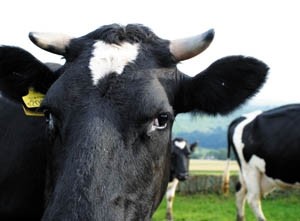Dairy associations: New labeling bill is not COOL at all

The Dairy COOL Act of 2011(S 831)introduced to Congress by Senator Al Franken (D-MN, pictured) last week, calls for country-of-origin labeling (COOL) on liquid milk, cheese, yogurt, ice cream, butter and ‘any other dairy product’.
However, it could end up encouraging manufacturers to “substitute vegetable-based or other protein ingredients instead of dairy ingredients” just to avoid the hassle of having to explain where their dairy ingredients come from, warned the International Dairy Foods Association (IDFA).
Unnecessary and restrictive
Describing the bill - which follows Senator Sherrod Brown's abortive attempt to extend COOL to dairy in 2009 - as “unnecessary and restrictive” IDFA has also taken issue with its vague terminology.
“The phrase ‘any other dairy product’ is problematic and open to interpretation,” added a spokeswoman.
"For instance, in the recently released rule to implement the dairy import assessment, USDA included cocoas and bakers’ dough under the category of ‘dairy products’.”
It could also antagonize trading partners, added Jerry Slominski, IDFA senior vice president of legislative affairs and economic policy. “We now export more dairy than we import so I worry about legislation like this that could invite retaliation from our trading partners and limit a growing part of our industry.”
Meanwhile, there was nothing stopping firms that did want to promote dairy products from local producers from doing so, he said. Meanwhile, existing legislation already required imported dairy products to be labeled with their country of origin, although this did not currently apply to ingredients, he added.
Protectionism by the back door?
Crucially, the bill did not have the support of the very people it was designed to assist: dairy farmers, claimed Chris Galen from the National Milk Producers Federation.
“Given the ongoing controversy over, and challenge with, implementing country of origin for meat products, and the learning curve involved in that regulation, we believe now is not the time to apply a similar requirement to dairy products. Canada’s and Mexico’s current dispute over the meat COOL regulation in the World Trade Organization is an indication of the challenges involved in this type of labeling.”
He added: “We hope the sponsors of this legislation, who are champions for dairy producers’ issues, will [instead] work with us on related labeling and regulatory issues that would promote the integrity of dairy labeling, such as raw milk, and the dairy terms [eg. soymilk] inappropriately applied to soy beverages.”
COOL controversy
COOL was introduced in the US in 2008, requiring origin labeling of meats, nuts and raw produce, but not dairy products or processed foods. However, it has proved deeply controversial, with some countries arguing it has damaged their trade with the US.
Meanwhile, proposals to apply COOL to more products in the EU Food Information Regulation have also caused controversy in Europe with many politicians holding out for COOL on all meat and poultry, milk and dairy products and other single-ingredient products, as well as for meat, poultry and fish when used as an ingredient in processed foods, something opposed by most food manufacturers.
Most fluid milk products and natural cheeses made in the US were made with US-sourced milk, but many processed dairy foods contained dairy ingredients of US and foreign origin, “the trade off often being a price point to determine the least cost supplier”, said IDFA.
One industry source said he expected Franken’s bill would die at committee stage, however, adding: “The bill was introduced in the last session of the Senate and didn’t go anywhere. This time, we don’t see how the dynamic is different.”














